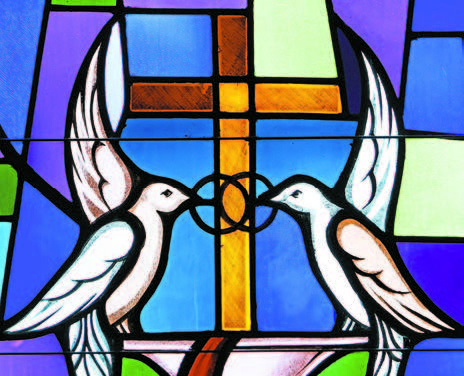
PROSPECT HEIGHTS — A couple of years ago, marriage in the Diocese of Brooklyn seemed to be making a comeback.
Couples, clergy, and wedding service vendors expressed joy that the crowd-throttling pandemic seemed to be “in the rearview mirror.”
In 2020, in the midst of lockdowns and shutdowns, parishes across the diocese celebrated 3,053 weddings, a healthy uptick from the previous year of 1,851. Speculation from vendors suggested couples took the lockdowns seriously, which may have spurred a renewed urgency to wed.
But new data paints a different picture.
In 2021, one year after the 2020 surge, the diocese celebrated only 1,164 weddings. Data for 2022 is not yet available.
“I think that it shows that there is a trend in society that marriage and religion is not in the forefront for most people,” said Christian Rada, the diocese’s director of Marriage, Family Formation, and Respect Life Education.
“People are waiting much later to get married,” he said. “They’re living at home much later until they can establish themselves. Honestly, I think that there is going to be an even bigger decrease … because of the cost of living and the economy.”
Rada’s office, which supplied the data, is part of the Secretariat for Evangelization and Catechesis. Its vicar is Father Joseph Gibino, who also is pastor of Holy Trinity Parish in Whitestone.
Rada and Father Gibino agreed that catechesis is a solution. And parishioners from throughout the diocese agree, having said so in the recent synod process that asked people in the diocese to offer their opinions about the Church, Rada said.
The National Eucharistic Revival, directing individuals and families toward deeper devotions to the body and blood of Christ, will be an important opportunity to deploy the multigenerational catechesis, they both said.
“There may be as many as three generations of adults who don’t feel adequately prepared to catechize,” Father Gibino said. “So we need to go back to help whole families in the religious tradition. Because it’s not enough to have a child baptized. The parents must be the first and best witnesses of the faith to children. That’s a crucial responsibility.”
In response, the diocese is embracing a national trend to move away from a catechesis built on textbooks and classrooms to a model in which a whole family takes responsibility, with their parish, for the faith formation of children and young adults.
“Certainly, in catechesis, we stress the importance of the relationship we have with Jesus — the role model for all of our relationships,” Father Gibino said. “Once we have begun that relationship with the Lord, we can build on that for our relationships with others.”
Information from the office also suggests that fewer marriages translate to fewer births.
The data shows a slide in baptisms that has gone unabated since 2013, when 17,118 babies received baptism. By 2021 that number had steadily dropped to 6,850, Rada said.
Father Gibino added that some Catholic couples are very honest in saying they aren’t interested in having children.
“Which poses a problem for the Church,” he said. “Because we believe that marriage certainly is for the mutual love and support of the couples. But it is also for procreation, and that is really important.”
The vicar explained that the Church exists under a “fundamental premise that we are here to build an apostolic community of love and to pass that on through evangelization and catechesis to generations.”
But, he said, “we can’t pass the faith on with fewer people in future generations to hear the Gospel. So we have to take very seriously that commandment to grow in faith and procreate.”
The most recent data from the Centers for Disease Control and Prevention show a slight increase in births nationwide in 2021 over 2020 — perhaps another result of the COVID-era lockdown.
The CDC’s National Center for Health Statistics reported 3,659,289 new babies born in 2021 and 3,613,647 births in 2020.
Still, this uptick shows scant growth for the overall U.S. population, considering 2021 is the first year since 2014 that the nation’s birthrate has not taken a downward trend.
Father Gibino confirmed these national and local trends are fueled by the economy and the career trajectories of individual people. But, he added, “I think people are taking longer to mature.” The nation may be witnessing an amplification of the “Me Generation Syndrome” from younger baby boomers to their children, the millennials, he added.
The transfer appears to be happening without proper instruction on personal responsibility, commitment, or even important life skills, such as interpersonal communication. Consequently, proper lessons on things like dating may have fallen by the wayside.
Father Gibino suggested that the proliferation of technology — despite all of its conveniences — appears to have directed people into self-imposed isolation.
“Role modeling and learning from another generation is very important,” Father Gibino said. “But I’m not sure how much of that is going on right now.”
Meanwhile, he noted, these narcissistic notions can negate confidence in making commitments.
“Because marriage is making a perpetual commitment to one person for life,” Father Gibino said. “It’s not only until you get tired of it or until things get tough. And It’s not all about ‘me.’ It’s all about us — the unity between you and I.”
